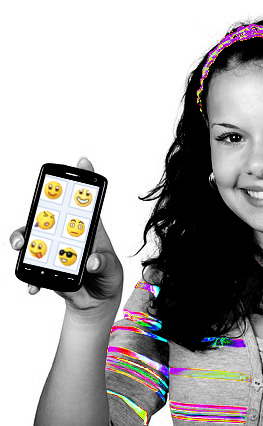Deep reading found in phone data
 A new study has shown how much a mobile phone can learn about its user’s lifestyle and mental health.
A new study has shown how much a mobile phone can learn about its user’s lifestyle and mental health.
A university in the US is using an Android app to compare students' happiness, stress, depression and loneliness to their academic performance and daily activities.
The same approach could be used in the general population too – for monitoring mental health, triggering intervention or improving productivity in workplace employees.
The app only required the user to input small amounts of information, doing most of its analysis with no interaction at all.
Dartmouth University researchers monitored readings from phone sensors carried by 48 students during a 10-week term to assess their mental health (depression, loneliness, stress), academic performance (grades across all their classes, term GPA and cumulative GPA) and behavioural trends (how stress, sleep, visits to the gym, etc., change in response to college workload - assignments, tests, exams - as the term progresses).
The app measured the following behaviours with no user interaction: sleep duration, the number and length of conversations per day, physical activity (walking, sitting, running, standing), where they were located and how long they stayed there (i.e., bedroom, classroom, bar, gym), stress level, eating habits and more.
The team also used a number of well known pre- and post-mental health surveys in combination with GPA results for evaluation of mental health and academic performance, respectively.
The results show that sensor data from the phones closely matched the students' mental health and academic performance over the term.
Among the key findings: Students who sleep more or have more conversations are less likely to be depressed; students who are more physically active are less likely to feel lonely; students who are around other students are less likely to be depressed.
Somewhat surprisingly: there was no correlation between students' academic performance and their class attendance; students who are more social (had more conversations) have a better GPA; students who have higher GPAs tend to be less physically active, have lower indoor mobility at night and are around more people.
The results of the study (accessible here in PDF) have been presented at the ACM International Joint Conference on Pervasive and Ubiquitous Computing. The team also made its dataset available for further analysis.
In the presentation, the study's senior author, computer science Professor Andrew Campbell, said the results open the door to the following intriguing investigations:
- a phone can tell if its owner is depressed, stressed or lonely;
- phone sensor data can predict student GPA;
- combined with intervention software, students can track their mental health and academic performance indicators with the goal of improving both;
- the app (and its methods) are applicable to non-student groups, such as in the workplace, with the goal of improving productivity or reducing stress by judging productivity on a daily basis
Dr Campbell warned that the app raised major privacy concerns about the incredible depth of finding possible by piecing together phone data.







 Print
Print